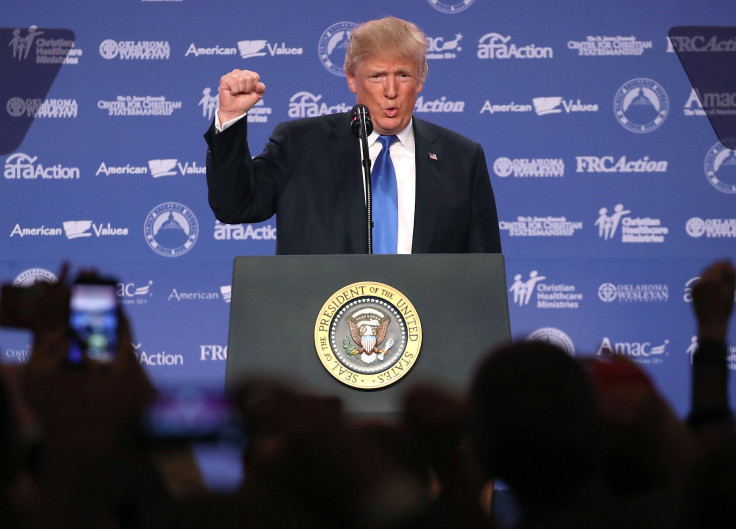1 in 5 Teens Bullied Over Politics, Most Concerned About Fake News

Even though teens under 18 aren’t allowed to cast a vote yet, the current political climate still affects them, according to a new survey by the National Cyber Security Alliance.
One in five teens say they have been harassed online because of their political views, according to the second annual Keeping Up with Generation App: NCSA Parent/Teen Online Safety Survey. The survey, co-sponsored by Microsoft, looks at the digital lives of teens ages 13 to 17 and parents of teens.
Besides reported harassment, the survey found teens and parents are concerned about fake news. Nearly half of all teen respondents said they were worried about mistakenly spreading fake news or misinformation online. Parents were more concerned, with 60 percent saying they were worried their teen would spread misinformation.
The concern shouldn’t come as a surprise, since Facebook and Twitter have said their platforms were used to spur politically divisive content.
The survey found parents and teens are interested in learning how to identify fake stories, especially the younger generation. Thirty percent of teens said they’d like to know more about spotting fake news, while 20 percent of parent said the same.
“It is encouraging to see that both teens and parents place a high priority on conveying accurate information across the internet,” Michael Kaiser, NCSA’s executive director, said in a statement. “They understand that they share a responsibility for making the internet safer.”
Some platforms have started to help users identify fake news on the internet. Last month, Bing launched a new “Fact Check” label feature for its search results after Google released a similar tool worldwide earlier this year. Meanwhile, Facebook launched an educational tool earlier this year to help users spot false stories.
The categories on fake news and bullying over political views were both added this year to the survey, given the political climate.
Digital Use Of Teens And Parents
When it comes to cybersecurity, teens and parents both think they know best. However, teens showed higher interest than parents in online safety issues, like phishing, website security and creating better passwords. The survey also found parents aren’t completely in the loop about their teens’ cyber activity, as 57 percent of teens have created an account that their parents don’t know about.
The report found teens mostly rely on parents when it comes to learning how to safe online. Nearly half of teens respondents said they looked up to their parents for internet safety tips, while 40 percent said they turned to their friends and 32 percent identified the news media as a primary source for education about online safety and security.
The survey identified the top three concerns affecting young people online for both teens and parents were:
Someone accessing a teen’s account without permission (teens, 41% vs. parents, 41%)
Someone sharing a teen’s personal information about them online (teens, 39% vs. parents, 42%)
Having a teen’s photo or video shared that they wanted private (teens, 36% vs. parents, 34%)
© Copyright IBTimes 2025. All rights reserved.




















